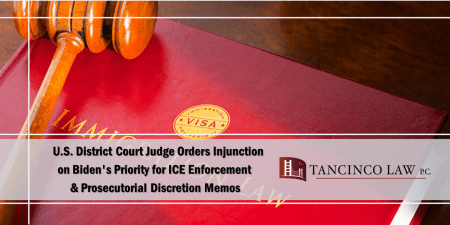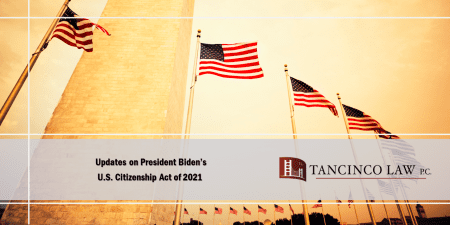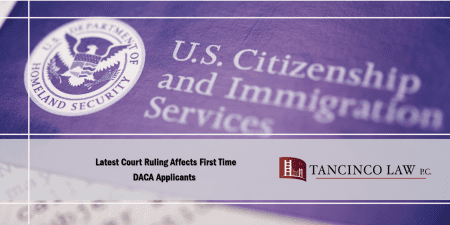If ICE were to immediately do an en masse arrest, detention and removal of millions of unauthorized immigrants from the United States, it will not only be an inhumane undertaking but there will also be an adverse socio-economic impact and a tremendous drain on government resources.
With a policy for a more compassionate immigration policy, President Biden issued policy directives through the Immigration and Customs Enforcement (ICE) agency early this year.
The Biden-Harris Administration came out with “priorities for enforcement” through ICE memoranda and directives:
(1) Pekoske Memo Dated January 20, 2021: Review of and Interim Revision to Civil Immigration Enforcement and Removal Policies and Priorities;
(2) Johnson Memo Dated February 18, 2021: Interim Guidance: Civil Immigration Enforcement and Removal Priorities
(3) Maher Memo Dated May 27, 2021: Implementing Interim Civil Immigration Enforcement Policies and Priorities;
(4) Trasvina Memo Dated May 21, 2021: Interim Guidance to OPLA Attorneys Regarding Civil Immigration Enforcement and Removal Policies and Priorities
The Pekoske and Johnson Memos set interim guidelines for immigration enforcement, including providing guidance to ICE ERO officers on prioritizing enforcement actions, custody decisions, the execution of final orders of removal, and other actions. Priorities for enforcement listed those individuals who are threats to national security, border security public safety and those with convictions for aggravated felonies.
The Maher and Trasvina Memo, on the other hand, provided guidance on ICE exercise of prosecutorial discretion (PD) at all stages of ICE enforcement including, but not limited to, issuance of Notice to Appear, Cancellation of the NTA, Stipulation to Relief, Administrative Closure, Termination and Continuances of Removal.
Notwithstanding the compassionate and practical nature of the priorities for enforcement and the reasonable guidance provided on prosecutorial discretion as contained in the Memos, the States of Texas and Louisiana filed a lawsuit against the Biden Administration questioning the legality of the abovementioned Memoranda (State of Texas v. United States, 6:21-cv-16 (S.D. Tex. Aug. 19, 2021). As a result of the lawsuit, Judge Drew Tipton issued a preliminary injunction against ICE restraining them from enforcing the ICE Memos. The injunction was temporarily suspended on August 23, 2021 until August 30, 2021.
Before the issuance of the injunction order, several immigrants who are in removal proceedings applied for Prosecutorial Discretion based on the relevant ICE Memo resulting in closure and sometimes termination of removal proceedings. With the injunction, the ICE priorities for enforcement and the prosecutorial discretion based on the subject Memos may not be enforced in the interim pending litigation. But this does not necessarily mean that the immigrant in removal proceedings may not avail of the request for prosecutorial discretion and other applicable reliefs based on ICE long standing policy. It will be best to seek legal advice from professional legal counsel for existing remedies that may still be available pending the final decision on the lawsuit.




